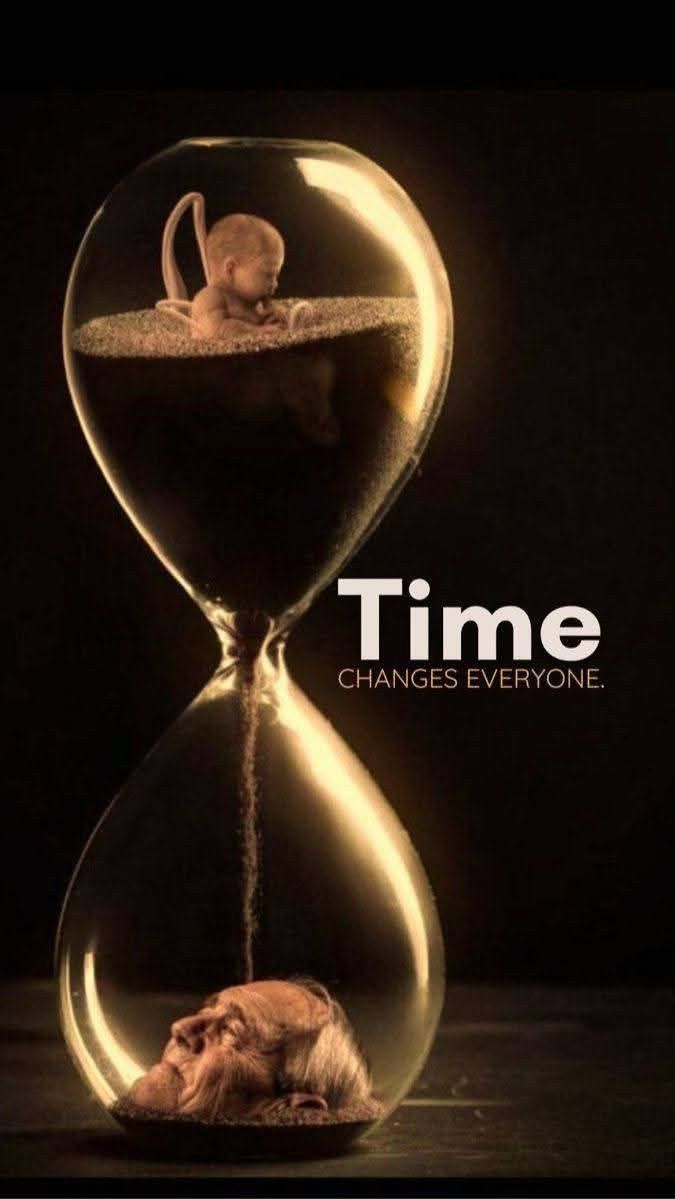Why Sleep is the New Flex Among Burnt-Out Youth
.jpeg)
Time is not just a measurement of hours and days, it is the greatest teacher of all. Just as the earth moves through spring, summer, autumn, and winter, our lives unfold in seasons that shape who we are and who we become. Each season brings with it unique lessons, challenges, and transformations. Some seasons are full of energy and possibility, while others seem still, cold, or painful. Yet every one of them serves a purpose. Recognizing this rhythm allows us to embrace change rather than fear it, to find meaning not only in moments of growth but also in times of uncertainty and loss.
From the vibrancy of youth to the quiet wisdom of later years, time mentors us in ways no classroom can. The passage of time forces us to reflect on our decisions, reshapes our perspectives, and teaches lessons that cannot be learned overnight. As the Latin saying goes, “Experience is the teacher of all things” (The Atlantic). The wisdom of this statement becomes clearer when we see life’s transitions as purposeful, not random, when we understand that every phase carries a message if we are willing to listen.
Life’s Seasons and Their Lessons
Life begins in a metaphorical spring, a period marked by innocence, curiosity, and the planting of seeds. Youth is filled with energy and discovery, a time when possibilities seem endless. This is when we form our values, build early relationships, and make decisions that often shape the trajectory of our future. Psychologist Daniel Levinson’s theory of adult development supports this view, explaining that life progresses through structured phases where transitions mark growth and change (Wikipedia). In spring, we experiment, fail, try again, and gradually learn who we are. Even mistakes serve as teachers in this stage, planting the seeds for future wisdom.
Spring gives way to summer, the season of action, building, and expansion. This is often the time of education, careers, relationships, and intense personal development. Here, we put into practice what we dreamed of during spring. Summer demands effort—it asks us to cultivate discipline and resilience while also teaching the importance of balance. According to JLN Coach, this period encourages us to not only work hard but also to celebrate and live fully (JLN Coach Blog). However, summer also carries the risk of burnout if we ignore the need for rest. Many young adults today face the consequences of overworking, learning that success without well-being is hollow. Summer teaches that ambition must be paired with self-care.

Image credit: Pinterest
Eventually, life transitions into autumn, a time of reflection and harvesting. In this season, the decisions made earlier begin to bear fruit. There is a sense of maturity, a deeper understanding of who we are, and often a shift toward mentoring others. Autumn invites us to evaluate: What have we achieved? What do we need to let go of? Just as trees shed their leaves, we too must release relationships, beliefs, and habits that no longer serve us. This letting go can be painful but also liberating. Autumn reminds us that growth is not only about accumulation but also about knowing when to release. This season also brings gratitude and appreciation for what we have, for the relationships we have built, and for the lessons learned along the way. Verywell Mind explains that autumn often functions psychologically as a temporal landmark, sparking reflection and renewed motivation.
Finally, winter arrives. While often seen as bleak, winter is one of the most transformative seasons. It is a time of stillness, introspection, and renewal. Sometimes winter comes in the form of aging, retirement, or solitude. At other times, it may come as loss, illness, or a period of emotional wintering where we withdraw from the world to heal. Though it may seem like an ending, winter holds deep lessons. Beneath its quiet surface, it prepares us for new beginnings. Therapist Angela Buttimer from Piedmont Healthcare notes that understanding a hard season as temporary helps us endure it with hope and purpose (Piedmont Healthcare). Winter teaches us to slow down, reflect, and gather strength for the renewal that inevitably follows.
Importantly, these seasons are not strictly tied to age. They can occur at any point in life, sometimes overlapping or repeating. A personal crisis in one’s twenties might feel like winter, while a major breakthrough in one’s fifties might feel like spring. Understanding this allows us to adapt more gracefully to change and to honor every phase instead of rushing through it. Life coach Tanisha Taylor captures this beautifully, noting that “like trees enduring winter to bloom in spring, humans can weather storms and emerge stronger, if we stay rooted and keep showing up” .
Time as the Greatest Teacher
Image credit: vectorstock
To view time as a teacher is to understand that every experience has value. Hardship teaches patience and resilience. Joy teaches gratitude and presence. Success teaches confidence while failure teaches humility. Seasons of abundance remind us to give, while seasons of scarcity teach us to adapt. The wisdom of Augustus Hare’s words, “Time is the school in which we learn,” becomes clear when we reflect on how every phase, pleasant or painful, shapes our character (The Atlantic).
Reflection is essential to learning from time. Without it, we risk living without truly growing. Taking moments to journal, meditate, or simply pause allows us to extract meaning from our experiences. This is how we turn the raw material of life into wisdom.
Some people believe we remain the same at our core through all these shifts, while others argue that we become entirely new individuals as time reshapes us. Jill Lepore, writing for The New Yorker, raises the question of whether personal identity is stable or fluid, suggesting that we may be both continuous and evolving at once. This duality, being both rooted and changing, reflects the paradox of human growth.
Embracing time’s lessons requires openness. We must stop resisting change and instead lean into it. This means observing the season we are in, reflecting on its purpose, and integrating its lessons into our lives. Mercer University suggests that clinging to one season can blind us to the opportunities and beauty of the next. Just as nature flows from one season to another, so must we trust the process of becoming.
In Conclusion;
In the end, time is not our enemy, it is our ally in transformation. Each season is a chapter of a larger story still being written. By living fully in each moment, honoring its gifts, and learning from its hardships, we allow ourselves to become more than we were yesterday. Life is not a straight line but a series of cycles. Embracing those cycles makes us wiser, deeper, and more whole.
When time becomes the teacher, we stop seeing life’s changes as obstacles and start viewing them as invitations to grow. Every season, whether bright or dark, has something to teach. When we listen, we don’t just pass through time, we let time shape us into the people we were always meant to be.
You may also like...
Bundesliga's New Nigerian Star Shines: Ogundu's Explosive Augsburg Debut!

Nigerian players experienced a weekend of mixed results in the German Bundesliga's 23rd match day. Uchenna Ogundu enjoye...
Capello Unleashes Juventus' Secret Weapon Against Osimhen in UCL Showdown!

Juventus faces an uphill battle against Galatasaray in the UEFA Champions League Round of 16 second leg, needing to over...
Berlinale Shocker: 'Yellow Letters' Takes Golden Bear, 'AnyMart' Director Debuts!

The Berlin Film Festival honored
Shocking Trend: Sudan's 'Lion Cubs' – Child Soldiers Going Viral on TikTok

A joint investigation reveals that child soldiers, dubbed 'lion cubs,' have become viral sensations on TikTok and other ...
Gregory Maqoma's 'Genesis': A Powerful Artistic Call for Healing in South Africa

Gregory Maqoma's new dance-opera, "Genesis: The Beginning and End of Time," has premiered in Cape Town, offering a capti...
Massive Rivian 2026.03 Update Boosts R1 Performance and Utility!

Rivian's latest software update, 2026.03, brings substantial enhancements to its R1S SUV and R1T pickup, broadening perf...
Bitcoin's Dire 29% Drop: VanEck Signals Seller Exhaustion Amid Market Carnage!

Bitcoin has suffered a sharp 29% price drop, but a VanEck report suggests seller exhaustion and a potential market botto...
Crypto Titans Shake-Up: Ripple & Deutsche Bank Partner, XRP Dips, CZ's UAE Bitcoin Mining Role Revealed!

Deutsche Bank is set to adopt Ripple's technology for faster, cheaper cross-border payments, marking a significant insti...

